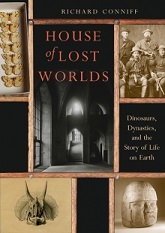THE FORGOTTEN REFORMER WHO MADE CITIES LIVABLE
Posted by Richard Conniff on February 1, 2024
By Richard Conniff
This article is excerpted and adapted from “Ending Epidemics: A History of Escape from Contagion” (The MIT Press)
It’s almost impossible now, thank God, to imagine the squalor of London and other supposedly civilized cities in the first half of the 19th century. As the rural poor moved to jobs in the factories of the Industrial Revolution, they overwhelmed the available housing and the adjacent, untended, and often uncovered, cesspools. Entire families commonly huddled together in single rooms, even in windowless basements. Overflowing sewage at times made entire cities feel as if adrift on a sea of human waste.
The result was a second revolution, for urban sanitary reform, and it succeeded largely through the outsize influence of one peculiar man. Edwin Chadwick, now mostly forgotten, was a barrister, journalist, and social reformer. From the early 1830s onward, Chadwick campaigned for the British government to intervene in matters of public health and welfare. He promoted essential urban services, including public water supply and sewerage, street cleaning, and garbage removal. Chadwick’s work transformed the character and well-being of cities not just in Britain but, by example, worldwide. Along the way, he helped to establish the basis for the modern liberal state. “Few men have done so much for their fellow-countrymen as Edwin Chadwick,” biographer R.A. Lewis wrote, “and received in return so little thanks.”
This uncelebrated status is no doubt due both to the lowliness of his chief subject — the disposal of human waste — and to Chadwick’s difficult personality. A sanitarian who was a friend described him in the heroic mode: “firm-set massive build,” “resolute expression,” “nose aquiline,” and “the head altogether large, and to the phrenologist finely developed.”
But photographs from the period show a tall, round-faced figure, in mustache and muttonchops, hair smeared in hanks across his balding scalp, peering out from heavy-lidded eyes with something like disdain. Chadwick made a reputation for prodigious energy, and for his command of the facts of any issue he studied. But he was also humorless and uncompromising toward those who disagreed with him. He made little effort to hide his contempt for aristocratic domination or for foot-dragging by corrupt or indifferent politicians.
He was also a bore, “a really outstanding specimen of bore in an age when the species flourished,” according to the otherwise admiring biography by Lewis. “Mr. Chadwick is not an orator,” a friend acknowledged. “When he first gets up to speak without book he looks an orator, but a few moments dispel the illusion.”
Pages: 1 2






Leave a comment